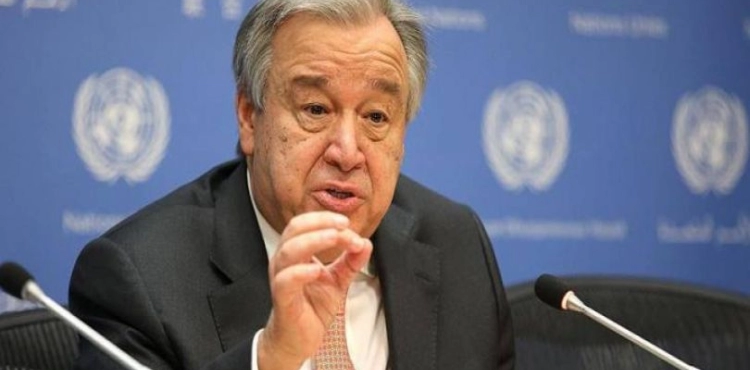Damascus _ Agencies
United Nations Secretary-General Antonio Guterres warned Tuesday that any use of chemical weapons in Idlib province (northwest Syria) would lead to a "situation out of control."
In remarks published on the IAEA´s official website, Gutierrez called on all parties involved in the Syrian crisis, "notably Iran, Russia and Turkey," to spare no efforts to protect civilians in Idlib province, maintain basic services and ensure full respect for international humanitarian law.
"The situation is developing in Idlib," Gutierrez said. There´s a lot at stake. It is absolutely necessary to avoid a comprehensive battle. This would unleash a human nightmare that is not like anything in the bloody Syrian conflict. "
"Nearly half of the current 2.9 million residents of Idlib, including some 1 million children, came to find safe haven after the fighting forced them to flee other parts of the country and have nowhere else to go," he said.
"Idlib is the last known area of pacification in Syria and must not become a bloodbath," he said.
"I understand that the current situation in Idlib is unsustainable, and the presence of terrorist groups cannot be tolerated," he added. But the fight against terrorism does not absolve the warring parties of their fundamental obligations under international law. "
"Any use of chemical weapons is totally unacceptable," Guterres warned. In addition to direct human losses, this use will result in the situation getting out of control. "
He stressed the importance of "making greater progress in the Geneva process (on a political solution), in particular the establishment of a constitutional commission as part of the overall political package."
He reiterated that, "there is no military solution to the conflict, the solution must be political."
Despite the announcement of Idlib and its surroundings as a "zone of tension reduction" in May 2017, under the "Astana" agreement between the Guarantor Parties (Ankara, Moscow and Tehran), the Syrian regime and the Russian forces continue to bombard them occasionally.












